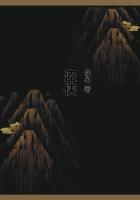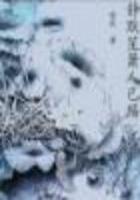These dogs, with six prairie-cocks killed this morning, formed a plentiful supply for the present. We here left our guide and the two young men who had accompanied him, two of the three being unwilling to go any further, and the third being of no use, as he was not acquainted with the river below.
We therefore took no Indians but our two chiefs, and resumed our journey in the presence of many of the Sokulks, who came to witness our departure.
The morning was cool and fair, and the wind from the southeast."
They now began again to meet Indians who had never before seen white men.
On the nineteenth, says the journal:--"The great chief, with two of his inferior chiefs and a third belonging to a band on the river below, made us a visit at a very early hour. The first of these was called Yelleppit,--a handsome, well-proportioned man, about five feet eight inches high, and thirty-five years of age, with a bold and dignified countenance; the rest were not distinguished in their appearance.
We smoked with them, and after making a speech, gave a medal, a handkerchief, and a string of wampum to Yelleppit, but a string of wampum only to the inferior chiefs. He requested us to remain till the middle of the day, in order that all his nation might come and see us; but we excused ourselves by telling him that on our return we would spend two or three days with him.
This conference detained us till nine o'clock, by which time great numbers of the Indians had come down to visit us.
On leaving them we went on for eight miles, when we came to an island near the left shore, which continued six miles in length.
At its lower extremity is a small island on which are five houses, at present vacant, though the scaffolds of fish are as usual abundant. A short distance below are two more islands, one of them near the middle of the river.
On this there were seven houses, but as soon as the Indians, who were drying fish, saw us, they fled to their houses, and not one of them appeared till we had passed; when they came out in greater numbers than is usual for houses of that size, which induced us to think that the inhabitants of the five lodges had been alarmed at our approach and taken refuge with them.
We were very desirous of landing in order to relieve their apprehensions, but as there was a bad rapid along the island all our care was necessary to prevent injury to the canoes.
At the foot of this rapid is a rock on the left shore, which is fourteen miles from our camp of last night and resembles a hat in shape."
Later in the day, Captain Clark ascended a bluff on the river bank, where he saw "a very high mountain covered with snow." This was Mount St. Helen's, in Cowlitz County, Washington. The altitude of the peak is nine thousand seven hundred and fifty feet.
"Having arrived at the lower ends of the rapids below the bluff before any of the rest of the party, be sat down on a rock to wait for them, and, seeing a crane fly across the river, shot it, and it fell near him. Several Indians had been before this passing on the opposite side towards the rapids, and some who were then nearly in front of him, being either alarmed at his appearance or the report of the gun, fled to their houses.
Captain Clark was afraid that these people had not yet heard that the white men were coming, and therefore, in order to allay their uneasiness before the rest of the party should arrive, he got into the small canoe with three men, rowed over towards the houses, and, while crossing, shot a duck, which fell into the water.
As he approached no person was to be seen except three men in the plains, and they, too, fled as he came near the shore.
He landed in front of five houses close to each other, but no one appeared, and the doors, which were of mat, were closed.
He went towards one of them with a pipe in his hand, and, pushing aside the mat, entered the lodge, where he found thirty-two persons, chiefly men and women, with a few children, all in the greatest consternation; some hanging down their heads, others crying and wringing their hands. He went up to them, and shook hands with each one in the most friendly manner; but their apprehensions, which had for a moment subsided, revived on his taking out a burning-glass, as there was no roof to the house, and lighting his pipe: he then offered it to several of the men, and distributed among the women and children some small trinkets which he had with him, and gradually restored a degree of tranquillity among them.
"Leaving this house, and directing each of his men to visit a house, he entered a second. Here he found the inmates more terrified than those in the first; but he succeeded in pacifying them, and afterward went into the other houses, where the men had been equally successful.
Retiring from the houses, he seated himself on a rock, and beckoned to some of the men to come and smoke with him; but none of them ventured to join him till the canoes arrived with the two chiefs, who immediately explained our pacific intention towards them.
Soon after the interpreter's wife [Sacajawea] landed, and her presence dissipated all doubts of our being well-disposed, since in this country no woman ever accompanies a war party: they therefore all came out, and seemed perfectly reconciled; nor could we, indeed, blame them for their terrors, which were perfectly natural. They told the two chiefs that they knew we were not men, for they had seen us fall from the clouds.
In fact, unperceived by them, Captain Clark had shot the white crane, which they had seen fall just before he appeared to their eyes: the duck which he had killed also fell close by him; and as there were some clouds flying over at the moment, they connected the fall of the birds with his sudden appearance, and believed that he had himself actually dropped from the clouds; considering the noise of the rifle, which they had never heard before, the sound announcing so extraordinary an event.
This belief was strengthened, when, on entering the room, he brought down fire from the heavens by means of his burning-glass.
We soon convinced them, however, that we were merely mortals; and after one of our chiefs had explained our history and objects, we all smoked together in great harmony.















